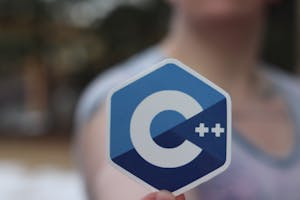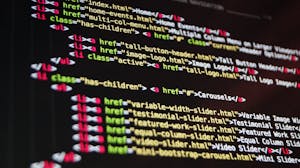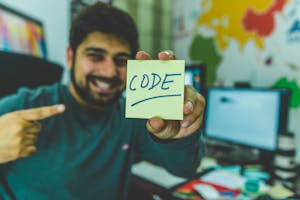how to start coding as beginner
Introduction: Coding, the process of creating instructions for computers using programming languages, is a skill that opens up a world of possibilities. Whether you're looking to develop websites, create software applications, or automate tasks, learning to code is an invaluable tool in today's digital age. The journey begins with choosing a programming language suited to your goals. Popular options include Python for its simplicity and versatility, JavaScript for web development, and Java for building robust applications. Starting with the basics, you’ll learn to write simple programs, understand syntax, and grasp fundamental concepts such as variables, loops, and conditionals. Resources like online tutorials, coding bootcamps, and interactive platforms like Codecademy and freeCodeCamp provide guided learning paths. Practice is key—work on small projects, contribute to open-source communities, and engage with fellow learners. As you progress, you’ll develop problem-solving skills and logical thinking. Remember, coding is a continuous learning process, and perseverance is essential. Embrace the challenges, and enjoy the rewarding journey of turning ideas into reality through code.
1. Choose a Start Programming Language.

Choosing the right programming language is the first crucial step in your coding journey. Your choice should align with your interests and career goals. Python is an excellent starting point due to its readability and wide range of applications, including web development, data analysis, and artificial intelligence. JavaScript is indispensable for front-end and back-end web development, enabling dynamic and interactive web pages. Java is renowned for its portability and is widely used in enterprise environments and Android app development. Research the strengths and uses of each language, and start with one that matches your goals. As you gain experience, learning additional languages will become easier.
2. Set Up Your Development Environment

Setting up a development environment is essential for writing and testing your code efficiently. Begin by choosing a code editor or an Integrated Development Environment (IDE). Visual Studio Code is a popular, versatile editor that supports many languages with extensive plugins. For Python, PyCharm offers powerful features tailored to Python development. IntelliJ IDEA is a robust choice for Java development. Install the necessary software development kits (SDKs) and libraries required for your chosen language. Familiarize yourself with the basic features of your editor or IDE, such as syntax highlighting, debugging tools, and version control integration. A well-configured environment boosts productivity and helps you focus on learning.
3. Learn the Basics

Understanding the basic concepts of programming is fundamental. Start with syntax, which is the set of rules defining how to write programs in your chosen language. Learn about variables, which store data, and data types like integers, strings, and booleans. Control structures such as loops and conditionals allow you to write dynamic and responsive code. Resources like online tutorials, coding bootcamps, and beginner-friendly books are invaluable at this stage. Engage with interactive coding platforms to reinforce your learning through hands-on practice. Building a solid foundation in the basics will make tackling more advanced topics and projects much easier as you progress.
4. Practice Regularly

Consistent practice is key to becoming proficient in coding. Dedicate time each day or week to solve coding problems and challenges. Websites like LeetCode, HackerRank, and CodeSignal offer a wide range of problems that help improve your problem-solving skills and understanding of algorithms. Start with easy problems and gradually move to more difficult ones as you gain confidence. Regular practice helps solidify concepts and improves your ability to think logically and write efficient code. Additionally, working on coding challenges introduces you to common programming patterns and techniques that are essential in real-world applications.
5. Explore Online Resources

The internet is rich with resources to support your coding journey. Platforms like Codecademy, freeCodeCamp, and Coursera offer structured courses with interactive lessons and projects. These courses cover a range of topics from basic syntax to advanced concepts. Joining coding communities on forums such as Stack Overflow, Reddit, and GitHub can provide support and insights from experienced developers. Engaging with these communities allows you to ask questions, share your progress, and learn from others' experiences. Utilize YouTube tutorials, blogs, and podcasts to supplement your learning and stay updated with the latest trends in technology.
6. Learn Version Control

Version control is an essential skill for any programmer. Git, a distributed version control system, is widely used in the industry to manage code changes and collaborate with other developers. Start by learning the basics of Git, such as creating repositories, committing changes, and branching. Platforms like GitHub, GitLab, and Bitbucket host Git repositories and provide additional tools for project management and collaboration. Use these platforms to host your projects, track changes, and work with other developers. Understanding version control not only helps you manage your code efficiently but also prepares you for teamwork in a professional environment where collaboration is crucial.
7. Keep Learning

Coding is a field that constantly evolves with new languages, frameworks, and technologies emerging regularly. Staying updated with these changes is important for long-term success. Follow industry news through blogs, podcasts, and tech websites. Participate in webinars, workshops, and conferences to learn from experts and network with other professionals. Continuously challenge yourself with new projects, advanced courses, and certifications. Learning new frameworks and tools can enhance your productivity and open up more opportunities in your career. Remember, the key to mastery in coding is a commitment to lifelong learning and adapting to new developments in the field.